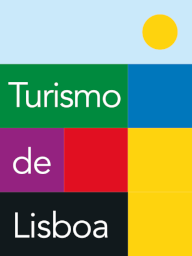Pessoa Route
One Pessoa, various heteronyms
Fernando Pessoa was not one genius but several. Often confused with the word pseudonym – where different texts are written by the same writer under different names – Pessoa’s heteronyms are very different. They reveal his great mystery and are his greatest invention.
Even though around 70 names feature in his work, only Alberto Caeiro, Ricardo Reis and Álvaro de Campo are considered heteronyms. The fourth name, Bernardo Soares, is regarded as a semi-heteronym, since his personality contains very similar characteristics to those of the author.
Who, then, are Fernando Pessoa’s heteronyms? What and how do they think? That is what we shall now look at.
Alberto Caeiro
Born in Lisbon in 1889, Caeiro spent his life in rural Portugal and became an orphan at a very young age, going to live with his great aunt. Despite the date given for his death, there are poems by him that date from 1919. He died of tuberculosis.
Ideals: he believes in empirical knowledge, that which can be learnt from concrete experience. An atheist, he does not question religion, indicating only that, “I only do not believe in God because I cannot see him.” He values simplicity and demonstrates his love for nature. It is more important to feel than to think.
Stylistic characteristics: the language of his poetry is simple, familiar and objective. Caeiro only went to primary school, after all.
I don’t believe in God because I’ve never seen him.
If he wanted me to believe in him,
Then surely he’d come and speak with me
He would enter by my door
Saying,” Here I am!”
(…)
Álvaro de Campos
Born in Tavira in 1890, the date of his death is unknown. He studied to be an engineer in Scotland but never actually worked in the profession.
There are three different phases in the life of Álvaro de Campos.
Decadent movement
Nostalgia, pessimism, a sense of the morbid… In this phase of his life, the poet journeyed to the East in search of inspiration and discovered opium. The substance became his means of “escaping reality”.
Stylistic characteristics: elements of neo-symbolism. Vaguer poetry, more suggestive imagery and a certain musicality.
I am nothing.
I shall always be nothing.
I can only want to be nothing.
Apart from this, I have in me all the dreams in the world.
(…)
Futurism
Euphoria and enthusiasm caused by the technological boom. This phase differs completely from the other two. But satisfaction was temporary…
Stylistic characteristics: a torrent of stripped down free verses. Often there is no punctuation in an attempt to imitate the speed of the technological world.
By the painful light of the factory’s huge electric lamps
I write in a fever.
I write gnashing my teeth, rabid for the beauty of all this,
For this beauty completely unknown to the ancients.
Nihilism
Absolute denial and maximum pessimism. And rebelliousness, disgust and rage towards the world and society as a whole.
Stylistic characteristics: free verse in very colloquial, day-to-day language.
Go to hell without me,
Or let me go there by myself.
Why should we go together?
Don´t grab my arm!
(…)
Ricardo Reis
Born in Porto in 1887, the date of his birth is unknown. He studied medicine and, before that, at a Jesuit school. As a monarchist, he moved to Brazil in 1919 after the establishment of the republic in Portugal (1910). A learned doctor, his life is marked by classical culture and ancient Greek and Latin philosophy.
Ideals: man is not the master of his fate and cannot alter it. He must live it serenely (carpe diem) and try to be happy doing so.
Stylistic characteristics: classical language and scholarly vocabulary. The poetry is formally structured. Mythology and an awareness of fate is very present.
Follow your destiny,
Follow your destiny,
Water your plants,
Love your roses.
(…)
